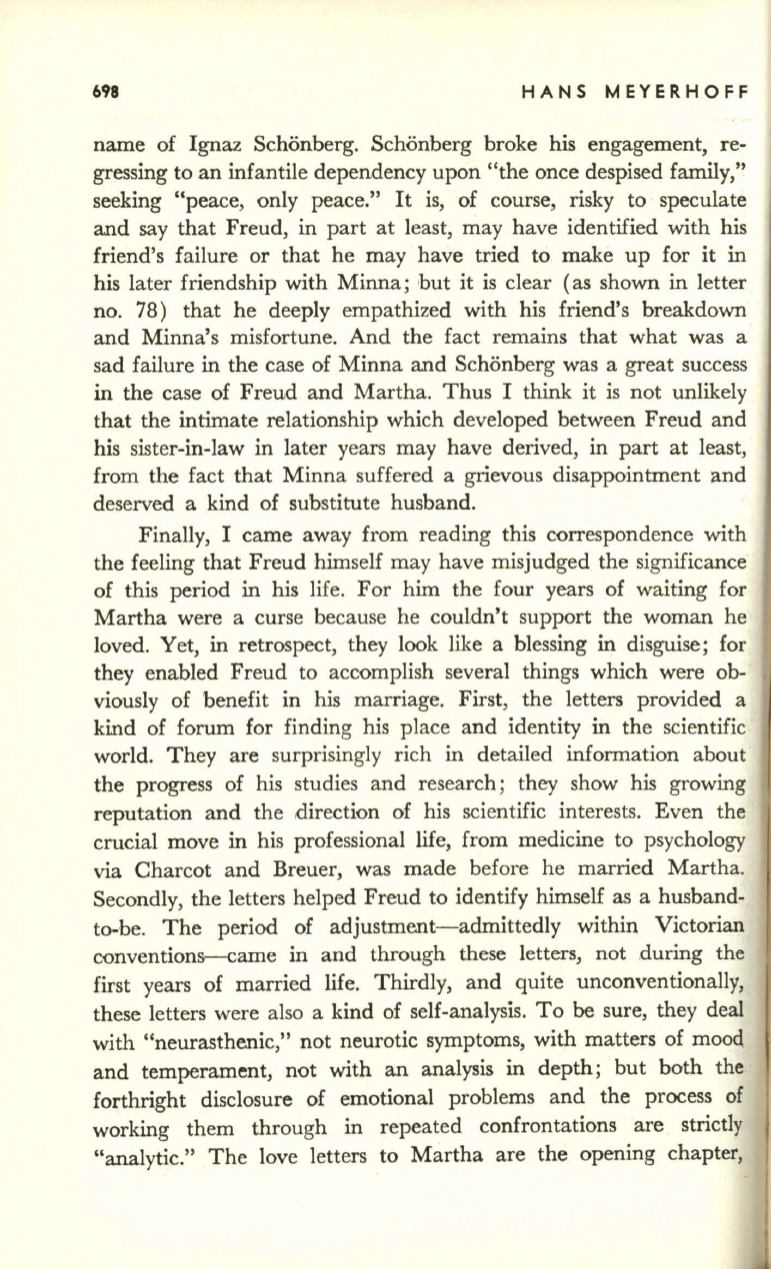
698
HANS MEYERHOFF
name of Ignaz Schonberg. Schonberg broke his engagement, re–
gressing to an infantile dependency upon "the once despised family,"
seeking "peace, only peace."
It
is, of course, risky to speculate
and say that Freud, in part at least, may have identified with his
friend's failure or that he may have tried to make up for it
in
his later friendship with Minna; but it is clear (as shown
in
letter
no. 78) that he deeply empathized with his friend's breakdown
and Minna's misfortune. And the fact remains that what was a
sad failure
in
the case of Minna and Schonberg was a great success
in the case of Freud and Martha. Thus I think it is not unlikely
that the intimate relationship which developed between Freud and
his sister-in-law in later years may have derived,
in
part at least,
from the fact that Minna suffered a grievous disappointment and
deserved a kind of substitute husband.
Finally, I came away from reading this correspondence with
the feeling that Freud himself may have misjudged the significance
of this period
in
his life. For him the four years of waiting for
Martha were a curse because he couldn't support the woman he
loved. Yet, in retrospect, they look like a blessing in disguise; for
they enabled Freud to accomplish several things which were ob–
viously of benefit in his marriage. First, the letters provided a
kind of forum for finding his place and identity
in
the scientific
world. They are surprisingly rich in detailed information about
the progress of his studies and research; they show his growing
reputation and the direction of his scientific interests. Even the
crucial move in his professional life, from medicine to psychology
via Charcot and Breuer, was made before he married Martha.
Secondly, the letters helped Freud to identify himself as a husband–
to-be. The period of adjustment-admittedly within Victorian
conventions-came in and through these letters, not during the
first years of married life. Thirdly, and quite unconventionally,
these letters were also a kind of self-analysis. To
be
sure, they deal
with "neurasthenic," not neurotic symptoms, with matters of moo<l
and temperament, not with an analysis
in
depth; but both the
forthright disclosure of emotional problems and the process of
working them through in repeated confrontations are strictly
"analytic." The love letters to Martha are the opening chapter,


